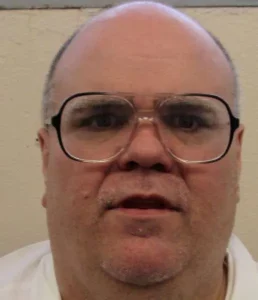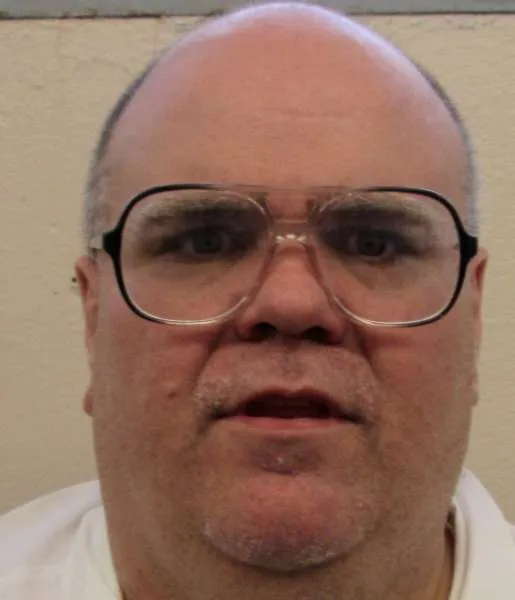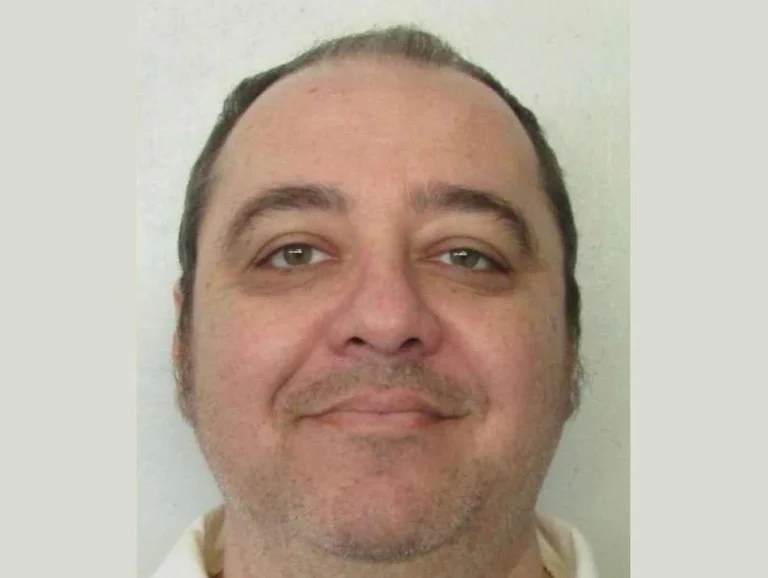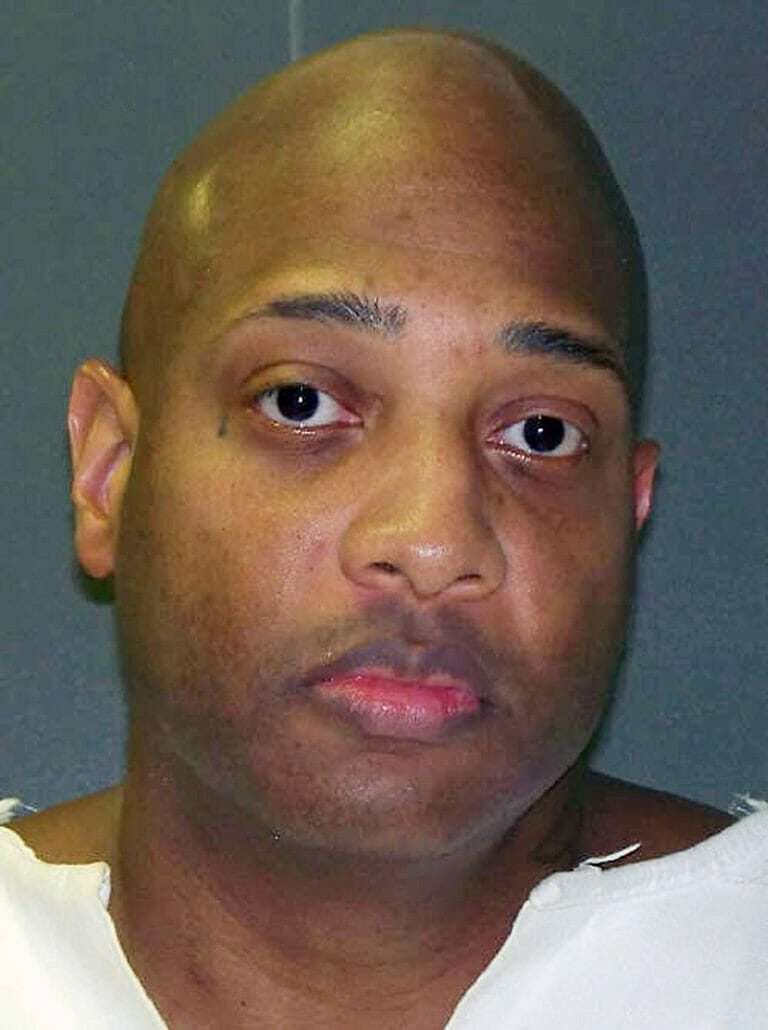Alan Eugene Miller Execution Scheduled For Today

The State of Alabama is getting ready to execute Alan Eugene Miller tonight, September 26 2024, for a triple murder that took place in 1999
According to court documents Alan Eugene Miller would murder Lee Holdbrooks, Christopher Scott Yancy and Terry Jarvis at two separate locations as Miller thought his coworkers were talking behind his back
Alan Eugene Miller would be arrested, convicted and sentenced to death
Alabama is planning to execute the triple killer by using nitrogen gas for only the second time. Since the use of nitrogen gas is relatively new there is still questions to how humane this method of execution is. Kenneth Smith was executed at the start of 2024 by this method
Alan Eugene Smith News
Alabama is preparing to carry out the nation’s second nitrogen gas execution on Thursday as disagreements continue over the humaneness of the new method of putting prisoners to death.
Alan Eugene Miller, 59, is scheduled to be executed with nitrogen gas at a south Alabama prison. Miller was convicted of killing three men — Lee Holdbrooks, Christopher Scott Yancy and Terry Jarvis — in back-to-back workplace shootings in 1999.
Alabama in January put Kenneth Smith to death in the first nitrogen gas execution. The new execution method involves placing a respirator gas mask over the inmate’s face to replace breathable air with pure nitrogen gas, causing death by lack of oxygen.
Alabama officials and advocates have argued over whether Smith suffered an unconstitutional level of pain during his execution. He shook in seizure-like spasms for more than two minutes as he was strapped to the gurney. That was followed by several minutes of gasping breathing.
“Alabama’s nitrogen hypoxia system is reliable and humane,” Alabama Attorney General Steve Marshall said last month in announcing a lawsuit settlement agreement that allowed for Miller’s execution. The state has scheduled a third nitrogen execution for November.
But death penalty opponents and advocates for other inmates facing nitrogen execution maintain that what happened with Smith shows there are problems with, or at least questions about, the new execution method. They said the method should be scrutinized more before it is used again.
“The fact that the state scheduled two more nitrogen executions without publicly acknowledging the failures of the first one is concerning. Going through with a second in the world nitrogen execution without reassessing the first, and under a continued veil of secrecy is not how a transparent government operates,” John Palombi, an attorney with the Federal Defenders Program who is representing another inmate facing a nitrogen execution in November, wrote in an email.
Death penalty opponents on Wednesday delivered petitions asking Gov. Kay Ivey to halt the execution. Miller is one of five death row inmates scheduled to be put to death in the span of one week, an unusually high number of executions that defies a yearslong trend of decline in the use of the death penalty in the U.S.
Miller, a delivery truck driver, was convicted of capital murder for the shootings that claimed three lives and shocked the city of Pelham, a suburban city just south of Birmingham.
The Aug. 5, 1999, workday had begun normally, a witness testified, until Miller showed up armed with a handgun saying he was “tired of people starting rumors on me.”
Police say that early that morning Miller entered Ferguson Enterprises and shot and killed two coworkers: Holdbrooks, 32, and Yancy, 28. He then drove 5 miles (8 kilometers) away to Post Airgas, where he had previously worked, and shot Jarvis, 39.
All three men were shot multiple times. A prosecutor told jurors at the 2000 trial that the men “are not just murdered, they are executed.”
Miller had initially pleaded not guilty by reason of insanity but later withdrew the plea. A psychiatrist hired by the defense said that Miller was mentally ill, but he also said Miller’s condition wasn’t severe enough to use as a basis for an insanity defense, according to court documents.
Jurors convicted Miller after 20 minutes of deliberation and voted he receive the death penalty.
Alabama had previously attempted to execute Miller by lethal injection. But the state called off the execution after being unable to connect an IV line to the 351-pound (159-kilogram) inmate. The state and Miller agreed that any other execution attempt would be with nitrogen gas.
The state might be making minor adjustments to execution procedures. Miller had initially challenged the nitrogen gas execution plans, citing witness descriptions of what happened to Smith. But he dropped the lawsuit after reaching a settlement last month with the state.
Court records did not disclose the terms of the agreement, but Miller had suggested several changes to the state’s nitrogen gas protocol. Those included using medical grade nitrogen and a sedative beforehand. Will Califf, a spokesperson for Attorney General Marshall, last month said he could not confirm if the state had agreed to make changes to execution procedures.
Mara E. Klebaner, an attorney representing Miller, said last month that he “entered into a settlement on favorable terms to protect his constitutional right to be free from cruel and unusual punishments.”
Alan Miller Execution
Alabama has carried out the second execution in the US using the controversial method of nitrogen gas, an experimental technique for humans that veterinarians have deemed unacceptable in the US and Europe for the euthanasia of most animals.
Alan Eugene Miller, 59, was pronounced dead at 6.38pm local time at a south Alabama prison.
Miller shook and trembled on the gurney for about two minutes with his body at times pulling against the restraints, followed by about six minutes of gasping, according to the Associated Press.
The lethal method involves being strapped down with a respirator mask applied to the face and pure nitrogen piped in. The resulting oxygen deprivation will cause death by asphyxia.
Miller’s final words were “I didn’t do anything to be in here” and “I didn’t do anything to be on death row”, according to reporters who witnessed his death. His voice was at times muffled by the mask that covered his face from forehead to chin.
Miller’s death is the latest in an extraordinary week in the US in which five condemned men in five states have been executed over six days. On Friday, South Carolina killed Khalil Divine Black Sun Allah, in its first execution in 13 years, and on Tuesday, Texas killed Travis Mullis and Missouri put to death Marcellus Williams. Also on Thursday, Oklahoma executed Emmanuel Littlejohn.
The execution of Williams in Missouri prompted widespread outrage across the US and beyond after local prosecutors, the victim’s family and several trial jurors tried unsuccessfully to stop it from going ahead. There was no forensic evidence to tie Williams to the crime, and the current prosecuting attorney for St Louis county concluded that the prisoner was actually innocent.
Alabama pressed ahead with Miller’s execution on Thursday over the 1999 shootings that killed three of his co-workers – Lee Holdbrooks, Christopher Scott Yancy and Terry Jarvis – despite deep misgivings about the new nitrogen method.
“Tonight, justice was finally served for these three victims,” Alabama’s governor, Kay Ivey, said in a statement. “His acts were not that of insanity, but pure evil. Three families were forever changed by his heinous crimes, and I pray that they can find comfort all these years later.”
The first nitrogen execution was carried out, also by Alabama, in January.
An eyewitness for the Associated Press described the death then of Kenneth Smith, 58. “Smith began to shake and writhe violently, in thrashing spasms and seizure-like movements … The force of his movements caused the gurney to visibly move at least once. Smith’s arms pulled against the straps holding him to the gurney. He lifted his head off the gurney and then fell back.”
Alabama described Smith’s death as a “textbook” execution.
Smith and Miller share a distinction in addition to the experimental killing method applied to them. Both men had the exceptionally unusual experience of surviving an execution attempt by lethal injection.
https://www.theguardian.com/us-news/2024/sep/26/alabama-nitrogen-gas-execution-alan-miller






